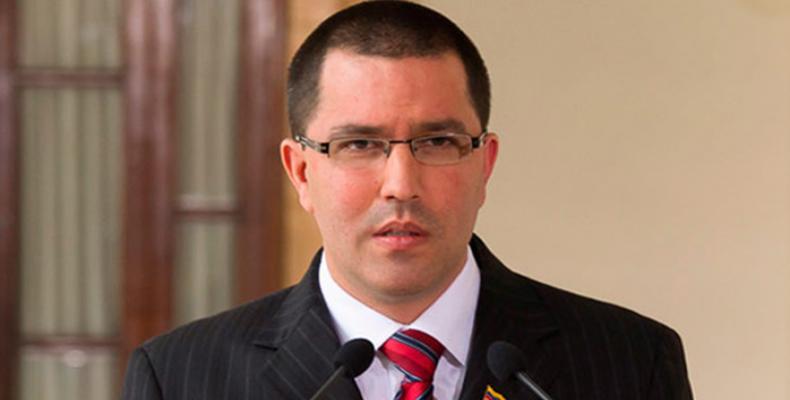Vienna, March 16 (RHC)-- Venezuelan Minister of Foreign Affairs Jorge Arreaza said his country is implementing methods to grapple with narcotics sales and consumptions, denouncing Colombia and the United States as responsible for the damages caused by drugs in the Americas at the United Nations Commission of Narcotics in Vienna, Austria.
During his speech at the U.N.'s 62nd session of the Commission on Narcotic Drugs, Arreaza said that Venezuela implements a comprehensive development model that allows for reducing the risk factors associated with the illegal consumption of illicit substances, and ratified that the country is not a route for drug trafficking.
"Venezuela has promoted more than 580,000 activities carried out since 2009 aimed at communities, schools, children, and prisoners," said the chancellor.
In his speech, the minister denounced that drugs produced in the neighboring country of Colombia end up "in the blood, the neurons, and the graves of young Americans," and that, despite the fact that the U.S. Drug Enforcement Administration acts "as watchman" in the country.
"How does this happen? How can the drug that is produced in Colombia and reaches the U.S. be released without being detected by the security systems of the most powerful country on this planet?" Arreaza asked. "How can institutions and states not be involved in this vicious circle?"
The Foreign Minister affirmed that more than 90 percent of the drugs seized in the United States comes from Colombia.
Arreaza said that the strategy of war on drugs has caused a high cost in Latin America. In some cases, he said it has given way to the installation of U.S. bases in the Latin American region which "seem more a pretext to have troops and territorial control over the region than a policy to combat drug trafficking."
The Venezuelan representative criticized that in recent years the number of hectares devoted to the cultivation of coca and the production of cocaine in Colombia has reached record levels. He said that some 5,000,000 Colombians have entered Venezuela to flee the violence from drug businesses.
"Without a doubt, drug trafficking is a source of accumulation and generation of wealth, which is full of blood and an inherent part of the capitalist system," Arreaza said, adding that "the drug trafficking industry is a tool that uses the economic system threatening the future of humanity."
After his speech, the Venezuelan minister met with the president of Bolivia, Evo Morales, who also participated in the U.N. meeting today. He also held a bilateral meeting with the Russian Foreign Minister Sergey Lavrov.
Previously, on Jan. 24, the U.S. government ordered the evacuation of its non-essential diplomatic personnel from Venezuela. On that occasion, Pompeo said that his country would maintain diplomatic relations with the opposition lawmaker and self-proclaimed “interim president” Juan Guaido, who has been backed by U.S. politicians in his international interventionist strategy against Venezuela's President Maduro.
In the FY20 Trump also requested a 19.4 percent increase in financial resources for fighting drugs in Latin America. If this proposal is approved by Congress, the regional anti-drug budget will shift from US$390 million in 2019 to US$484 million in 2020.
Colombia would benefit the most, as its U.S.-financed anti-drug funds would go from $143 million in 2019 to $209 million in 2020, a hike representing a 31.5 percent increase.
Venezuela leads fight against narcotics while U.S. and Colombia indulge in drug trade

Related Articles
Commentaries
MAKE A COMMENT
All fields requiredMore Views
- Adidas president highlights reunion with Cuba
- Cuba and Mongolia exchange on biotechnology in agriculture
- Founder of sport parachuting in Cuba passes away
- Vegueros de Pinar remains at the top of the National Baseball Series
- UNICEF says over 14,000 children killed in Israel’s genocidal war of aggression against Gaza

